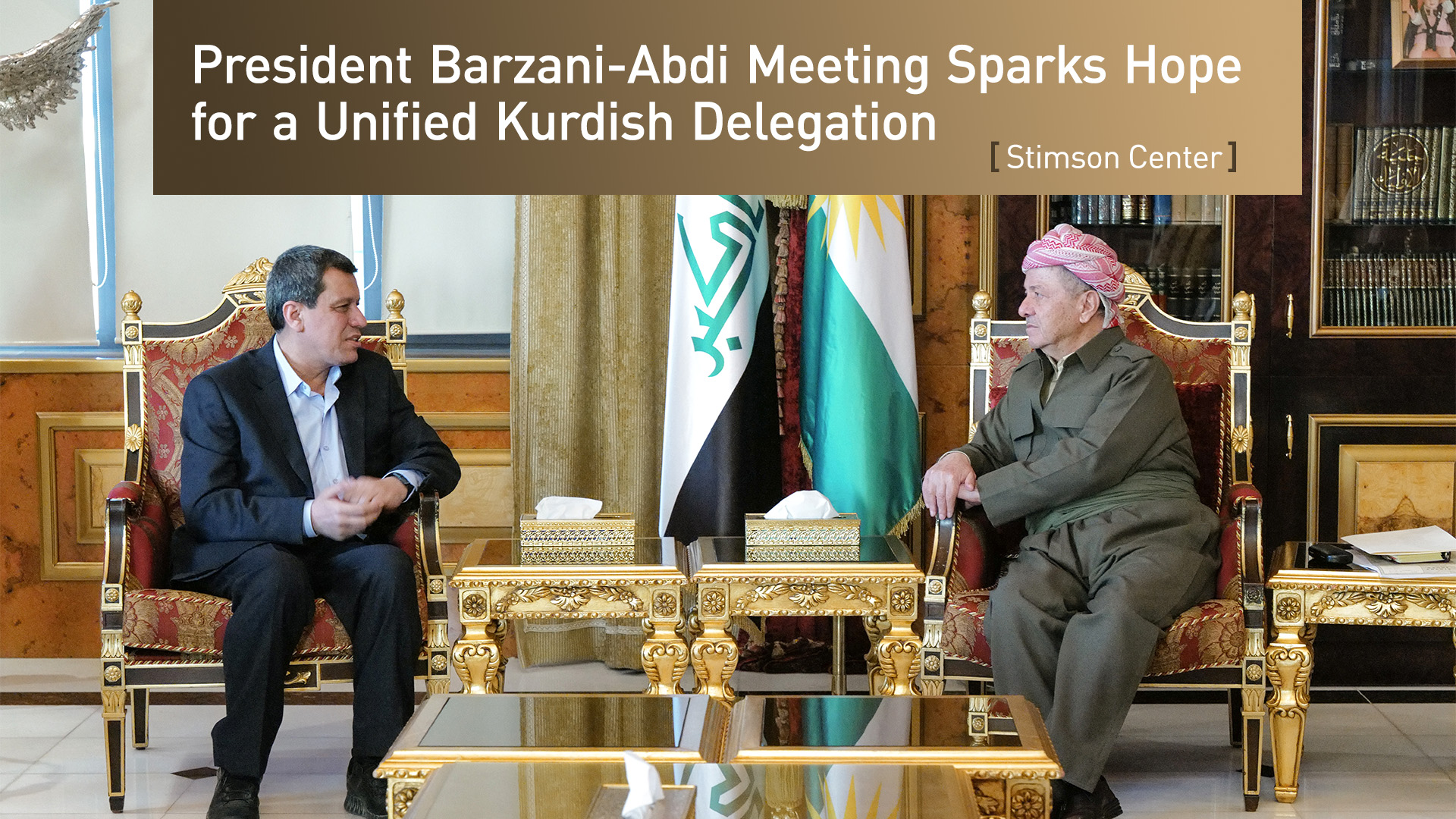President Barzani-Abdi Meeting Sparks Hope for Unified Kurdish Delegation: Stimson Center
The report also underlines broader diplomatic engagements, particularly Kurdistan Region's Prime Minister Masrour Barzani’s meeting with Syrian Foreign Minister Asaad al-Shaibani in Davos.

Feb. 3, 2025
ERBIL (Kurdistan24) – The American Stimson Center has underlined the strategic significance of the recent meeting between President Masoud Barzani and Syrian Democratic Forces (SDF) General Commander Mazloum Abdi, viewing it as a crucial moment in promoting Kurdish unity amid Syria’s evolving political landscape.
In a newly released report, the Stimson Center examined Iraq and the Kurdistan Region’s role in Syria’s stabilization and reconstruction, highlighting their deep geographic and historical ties to the country.
The report emphasizes how the Kurdistan Region has provided essential humanitarian support throughout the Syrian conflict, sheltering thousands of Syrian Kurdish civilians and strengthening strong cross-border connections.
One of the central themes of the analysis is the impact of internal divisions among Syrian Kurdish factions, which have historically weakened efforts to negotiate collectively with Damascus.
However, the think tank identifies the Jan. 16, 2025, meeting between President Barzani and SDF Commander Abdi in Pirmam as a pivotal step toward achieving a more united Kurdish political stance in Syria.
The report also underlines broader diplomatic engagements, particularly Kurdistan Region's Prime Minister Masrour Barzani’s meeting with Syrian Foreign Minister Asaad al-Shaibani in Davos.
This interaction, according to the Stimson Center, laid the basis for establishing stronger bilateral relations between the Kurdistan Region and Syria’s post-Assad administration.
Following the President Barzani-Abdi meeting, Commander Abdi publicly expressed his optimism about the discussions, sharing on X (formerly Twitter) that the engagement with President Barzani was a productive development.
This aligns with the Stimson Center’s conclusion that improved coordination between Kurdish factions is vital to securing Kurdish interests and contributing to regional stability.
The analysis highlights the Kurdistan Region’s pivotal role in shaping Syria’s future political order and suggests that prolonged Kurdish unity will be crucial in navigating the complex geopolitical challenges ahead.
The Stimson Center's report further highlights the potential for Iraq and the Kurdistan Region to contribute to Syria's stabilization through various avenues.
It highlights the historic social and cultural similarities between the Iraqi and Syrian peoples, suggesting that these commonalities provide a natural platform for cooperation in areas such as the economy, trade, culture, climate change, academia, and geopolitics.
The report also states that Syrian and Iraqi stakeholders have recognized an urgent necessity to establish contacts to address knowledge gaps and jointly develop policies for post-Assad relations.
By capitalizing on these shared cultural and historical ties, the Kurdistan Region can play an important role in promoting dialogue and cooperation between Iraqi and Syrian institutions, including universities, think tanks, intellectuals, artists, and civil society organizations.
Such collaboration could be instrumental in addressing common challenges and promoting stability in the region.
The Stimson Center's analysis suggests that by promoting these connections and supporting inclusive governance structures, the Kurdistan Region can help ensure that the transition in Syria leads to a more stable and prosperous future for all its citizens.